- Home
- alleyinsider
- 21 simple ways to make money without doing anything
21 simple ways to make money without doing anything
1. Become a referral source for local businesses.

2. Write a book and get royalties.

Okay, so this one takes a bit of work. But lets say you're an expert on a subject. On Marissa Mayer and the company Yahoo!, for example (now available in paperback). Once you actually write the book and put your expertise to paper, then get it published, you're pretty much done.
From then on, whenever people buy your book, you get paid in royalties. The precise amount of royalties are contingent on your contract with the book publisher.
If you self publish on Amazon or another self-publishing platform, there are standardized contracts that pay out depending on how many people download the ebook or read it through Amazon's ebook-lending program.
3. Create an online course and get paid for it.

Let's say you're an expert in a subject, but don't think that a book is the right way to communicate the knowledge you want to share.
You can do it with an online course. You can make and upload one to Udemy, for example, and set your own price points. Whenever someone buys the course, you'll get paid.
4. Make a website and get advertisement revenue.

If you're an expert in a subject, but that subject isn't fit for a book project or an online course, set up a website!
Use Wordpress, Weebly, or some other web-creation platform to make a site and make your guide there. Then sell online ads — which you can do with Google, for example — on your site so that you get some spare revenue whenever someone reads your work.
5. Or make a YouTube video guide.

Stick with me. Let's say you're an expert on a subject, but the best way to convey your information isn't in a book, an online course, or a post on the web. Instead, consider making a YouTube video.
YouTube is filled with thousands and thousands of guides on every topic imaginable. If you're an expert on how to do a factory reset on an iPhone, you can make a video about that. If you're an illustrator and want to explain the vocabulary of your trade, you can make a video about that.
As with the web, YouTube lets you set up ads on your videos. People searching for those subjects will find your videos, watch them, and then the ad revenue will roll in indefinitely.
6. If you already have a website, use referral links.

Whether your website is an online guide, a blog, or whatever else, use referral links whenever you discuss a product.
Sites like Amazon, for example, let you add a bit of code in the URL of a product. If anyone buys the product through that URL, you get a percentage of the revenue from that purchase.
7. Be in a commercial.

Any actor will tell you that getting an acting gig — even a commercial — is tough. If you live in a major metropolitan area, though, it isn't as difficult to become an extra.
If the contract is good, you can make some serious money. One of my friends was featured in a Target commercial that was in heavy rotation during the 2012 Summer Olympics. He got $500 every time it aired and used the cash to pay off a good chunk of his college tuition.
Here's more info on how to become an extra and what it's like.
8. Airbnb your unused apartment or room.

If your kids have flown the coop and you have an extra room in your house, or if you're traveling for awhile and won't be in your apartment, consider renting it out for the short term on websites like Airbnb or VRBO.
They basically allow you to turn your room into a hotel. You can list your room, set rental dates and prices, and people visiting the area will pay you to live in your room for a short amount of time.
How much you can make depends on the rental market in your area, however.
If you have an apartment in Williamsburg, Brooklyn, for example, you can stand to make a pretty penny by renting out your room while you go backpacking in Europe for the summer. But if you're in Pittsfield, Maine, you might not find as much demand for your house's extra bedroom.
9. Sell old books on Amazon.

If you have a bunch of old books lying around that you never plan to read again, you can put them in a box and ship them to Amazon to sell for you. Whenever one gets sold, they'll take a cut and then give you the remainder of the profits.
10. Invest in index funds.
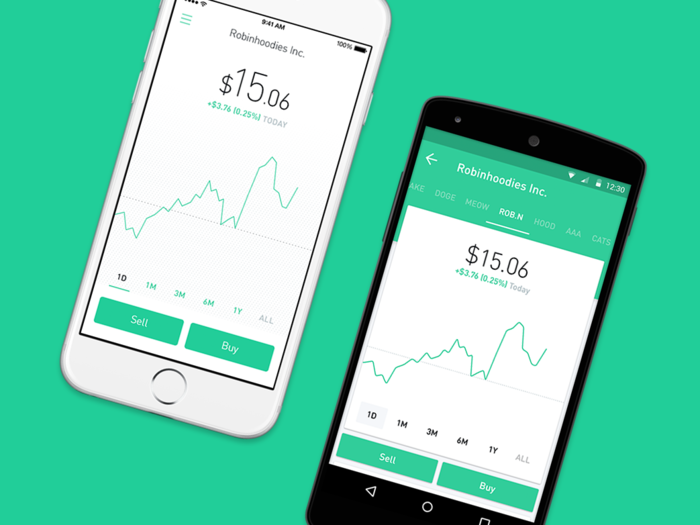
It's generally a really bad idea to try to play the stock market unless you're a financial professional.
There's one exception: index funds. Investing in a small number of stocks is a volatile business. It's possible to make a lot of money, but you could lose a lot, too.
Investing in index funds puts a little bit of money in a lot of stocks. Those stocks track parts of the stock market as a whole. One index fund known as the S&P 500 has grown by more than 2,000% over the last 40 years, so it's a relatively safe, stable fund to invest in.
However, you likely don't stand to lose or gain as much money as you would if you invest in individual stocks.
To invest in stocks, the easiest way would be to get a brokerage account at a bank like Charles Schwab, or use the free stock trading app Robinhood.
11. Save your money in a high-yield savings account.
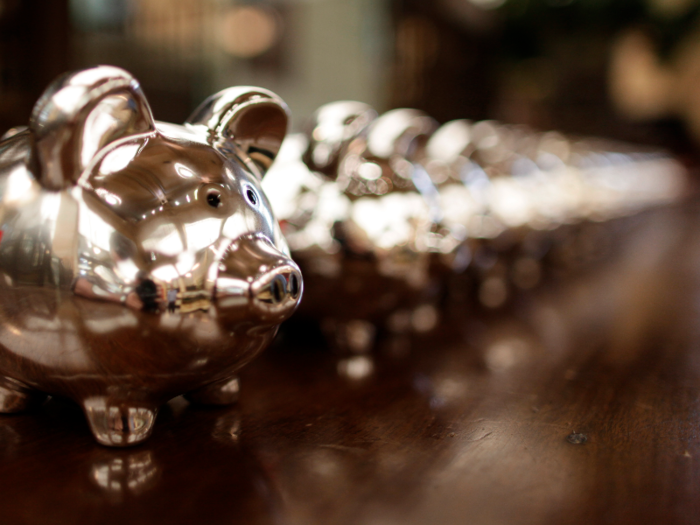
When you save your money in a savings account, banks often give you extra money based on interest.
Sometimes their interest rates can be low — below inflation rates, even — which means you're effectively losing money. The interest figure, often referred to as "APY," can differ based on which country or state you live in and what each bank offers in your area. On the low end, they're about 0.01%, assuming you meet the bank's minimum requirements.
But with a high yield savings account, you can get an APY of about 1%. It isn't much, but it's significantly higher than what a low-interest account would offer.
Unless you have a lot of savings, it's hard to be eligible for a high-yield savings account from a traditional bank. Instead, you'll probably have to park your money in an online bank, like Ally or Synchrony. Since they don't have brick-and-mortar stores, they pass the money they save on rent to the consumers, with things like high-yield savings and by reimbursing users for ATM fees.
12. Use Acorns to invest your spare change.
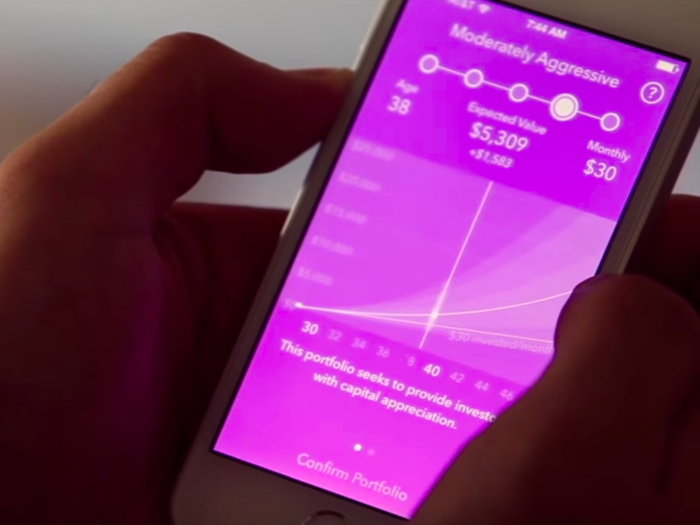
The app Acorns also offers a similarly safe, relatively stable way to make a little extra money.
It's an app that lets you link credit or debit cards to it. When you make a purchase, it rounds up the price and then invests the difference into stock portfolios.
So for example, lets say you buy a cup of coffee for $2.69. You can instruct acorns to charge your credit card $3, and then invest the extra 31 cents into an index fund, or in another stock portfolio.
Bank of America has a similar program called Keep the Change, which puts the difference into a savings account.
13. Invest in high-dividend stocks.

Among the funds you invest in, make some high-dividend stocks.
There are two kinds of dividends: cash dividends and stock dividends.
Cash dividends are when companies give shareholders cash based on their profits, and stock dividends are when corporations give shareholders extra stock.
Dividends are given for different reasons, but they're ways that companies reward shareholders for holding on to a stock.
The list of companies that regularly give out dividends sometimes changes, but you can find some recent ones on finance sites like The Motley Fool, which currently recommends Iron Mountain.
14. Get even more cash back with Ebates.
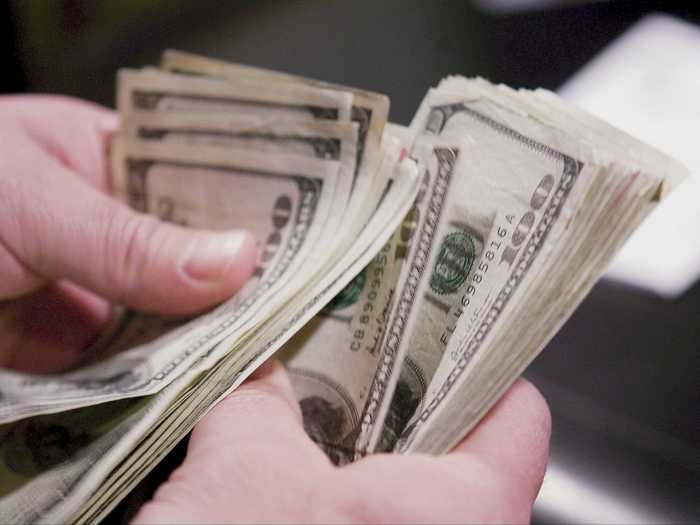
Thousands of online stores, whether it's J.Crew or Amazon, also offer cash back for purchases you make on their sites. You just need to know where to look.
The website Ebates catalogs almost all of them. If you shop with their browser extension installed, it'll tell you when cash back or coupons are available. You can also use the extension Wikibuy, which has Ebates integration built in, and additionally checks in the background if the item you're shopping for is cheaper on a different website.
15. Sell your photography to the web.

Sites like INSIDER always need good photos for our content, like the one above.
Sometimes we take our photos ourselves, sometimes we get them from news-wire services like Reuters and Getty, and sometimes we get them from stock image services, like Shutterstock and iStock.
For Shutterstock and iStock, anyone can submit their photos to be included in the service. You just have to follow their guidelines and upload your photos. Then when someone (like INSIDER) downloads your photos through them, they'll pay you a fee. If you're a photography hobbyist, it's a relatively simple way to make some money from your photographs.
16. Get cash back on credit cards.
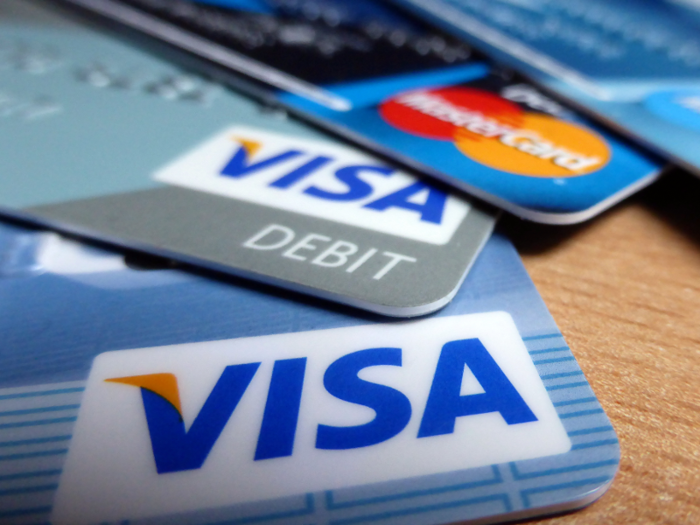
Credit cards often offer cash back as a reward for making purchases. What this means is, for every purchase you make, the credit card company will give you a small percentage of the money back.
The percentage differs between credit cards and categories. So, for example, one type of credit card might offer 1.5% cash back on all purchases. Another might offer 1% back on most purchases, but 5% back on gas and travel purchases.
You also often have to reach a certain threshold of payment to be able to cash in. And cards will often allow you to redeem your cash back as "points" to purchase things directly from the credit card company's website instead.
17. Invest in real estate.

This one takes more cash upfront and more management, but the payout could be significant.
If you can invest in a real estate venture, you can make a lot of rental money. Of course, there are a lot of obstacles to hurdle. Most importantly, you need a lot of capital to invest in the first place. And secondly, you need to make sure the place you're investing in will have a steady stream of rent-paying tenants.
But once you have a property that's established and has tenants, it's just a matter of upkeep.
If you invest in a venture with a full-time property manager, the job becomes much more passive. Renting out real estate is a considerably more simple and stable way to get extra cash flow every month with relatively little effort compared to other investment opportunities.
18. Build an app.
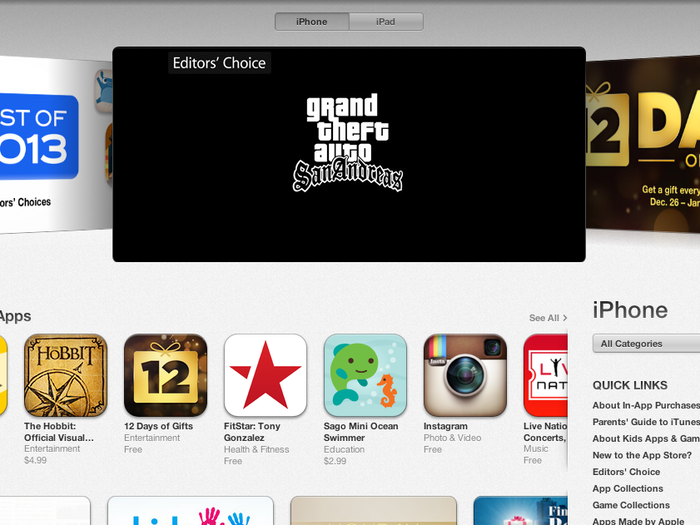
If there's a function you want on your smartphone, try making an app for it. With sites like Code Academy, learning to code is easier than ever.
If your app is good and people like it, you can easily make money in two ways. One way is to charge for it in Apple's App Store or Android's Google Play Store. Or you can sell ads on it, as you would on a website.
Skeptical? Read Nathan Barry's article, "How I Made $19,000 on the App Store While Learning to Code." It's possible.
19. Get paid for watching TV and playing video games.

It's the dream, isn't it?
Sites like Inboxdollars will pay you money to keep track of the television you watch, the video games you play, and other habits you might have already. All you have to do is take surveys to give your feedback, and they'll pay you.
The money comes from research firms that want to understand consumer habits.
20. Get paid for browsing the web.
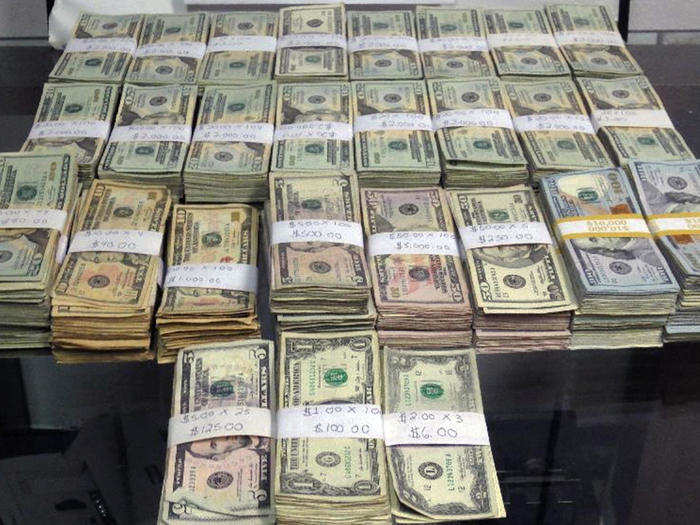
Similarly, Swagbucks will pay you for installing an add-on that tracks your searches. Like Inboxdollars, they're a middleman for research firms that want to understand how people use the web.
You earn points for doing everyday things, and can redeem them for gift cards at stores you'd probably shop at anyway, like Amazon and Walmart.
21. Get paid for improving products.

dScout is kind of like a more advanced version of Inboxdollars and Swagbucks. Instead of earning money in a relatively passive way, dScout is an app where you can sign up for "missions."
Companies that want to get consumer research will offer elaborate "missions" that you can sign up for on the app. They might involve going to a supermarket and checking the availability of granola bars, or testing out a device.
While completing the mission, you need to answer survey questions, and they'll pay you for it. It's not always easy to get accepted to a mission, but if you do, you can stand to make much more money than with Inboxdollars or Swagbucks. It's not uncommon to see missions that pay out around $50.
Popular Right Now
Popular Keywords
Advertisement